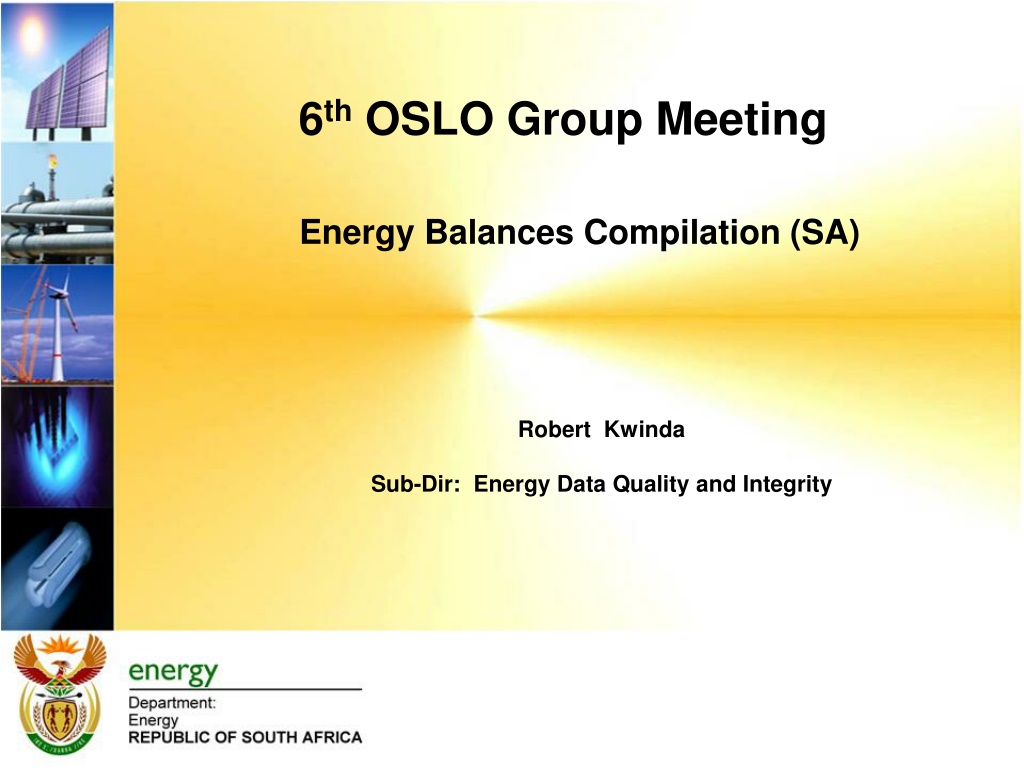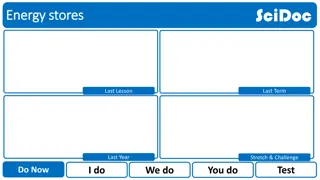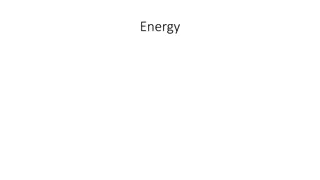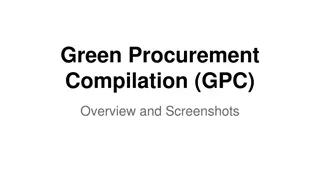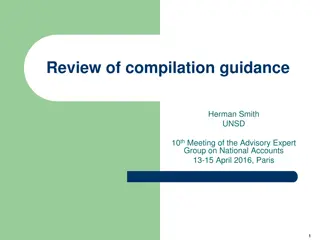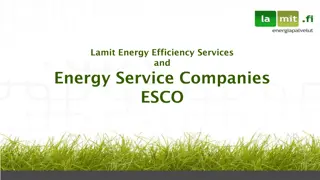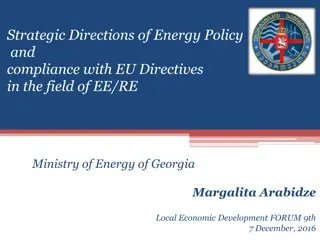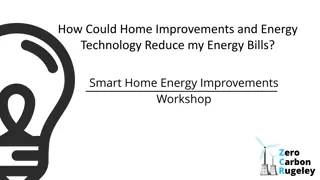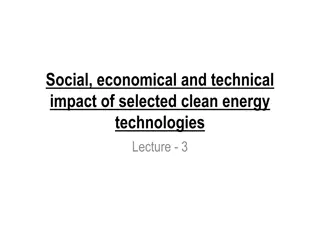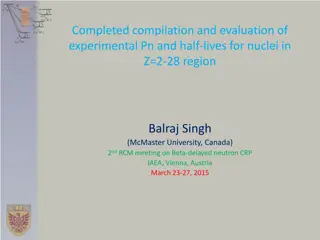Energy Data Management and Compilation Overview
This document provides insights into the data management processes related to energy balances compilation, covering aspects such as electricity generation, petroleum products, coal production, gas, and renewable energy data. It details data collection methods, quality control procedures, and preparation steps. The content emphasizes the importance of structured data collection and adherence to regulations for energy data provision.
Download Presentation

Please find below an Image/Link to download the presentation.
The content on the website is provided AS IS for your information and personal use only. It may not be sold, licensed, or shared on other websites without obtaining consent from the author. Download presentation by click this link. If you encounter any issues during the download, it is possible that the publisher has removed the file from their server.
E N D
Presentation Transcript
6thOSLO Group Meeting Energy Balances Compilation (SA) Robert Kwinda Sub-Dir: Energy Data Quality and Integrity
Data Management Data collected. Electricity Data Local generation (ESKOM owned, IPP s and Self Generating) Imports and Exports (SARS) Electricity used by refineries(Oil Companies) and coal mines(DMR) Final consumption of Electricity by Sector (NERSA, ESKOM, IPP s) Crude Oil and Petroleum data Importation and Exportation of Oil and petroleum products (SARS); Oil used in refineries and transformation output (SAPIA, Oil Companies) Final Consumption of Petroleum products by sector (SAPIA, Oil Companies, etc) Coal Local production (DMR) Imports and Exports (SARS) Transformation: Electricity Gen and liquefaction (ESKOM, Oil companies) Final Consumption of coal by Sector (DMR, StatsSA, Research Studies, etc)
Data Management Data collected...............................................................Cont. Gas Data Local production (SASOL, PetroSA and Others) Imports and Exports (SARS) Transformation(Gas works Gas and Liquefaction) (Gas Refining companies) Final consumption of Gas by Sector (Gas Refining companies, LPG Association and other sector organisation) Nuclear, Hydro, Solar and Renewables Data Some data extracted from research studies and related papers. More formal sources being identified.
Data Management Data collection methods. Data provided to the Department via Email and fax and mostly on excel format Formal agreements with data providers entered into. Data provided to the Department on pre-defined periodic basis. Currently, there is scientific/ probability based data collection as all identified data providers are requested to provide data to the Minister. Regulations on the Provision of Energy Data (Driven from the National Energy Act of 1998)
Data Management Data preparation Data is received and captured in the commodity flow spreadsheet in native units as well as in the Energy database. The commodity flow spreadsheet is imported into the Energy Database and in the process, the native units are converted into a single unit (TJ). This becomes the Basic file The aggregated and the disaggregated files are also created during the importation process.
Data Management Data Quality Control Computer System based... Comparisons of current figures with historical data to identify obvious outliers. Built-in conversion functionality in the database. Built-in functionality to detect when a wrong is attached to a figure. Built-in functionality to detect unrealistic statistical difference. Final consumption of Gas by Sector (Gas Refining companies, LPG Association and other sector organisation) Non Computer based... Internal Review by relevant sections within the Department. Review by External stakeholders, including data providers and industry experts. The Minister to be requested to approve the revision of some of our data by the IEA. An Energy Statistics Review Team has been established to review the Energy Balances from time tom time.
Data Management Publication The Basic, aggregated and disaggregated balances are published in the website after approval by the Director-General The Digest of South African Energy Statistics is produced out of these file and published on approval by the Minister of Energy. Local and Global reporting obligations ( UNSD, StatsSA and other organs of state)
THANK YOU Contact details: Department of Energy Building 2A, 4th floor 012-444-4097 Maluta.Kwinda@energy.gov.za
